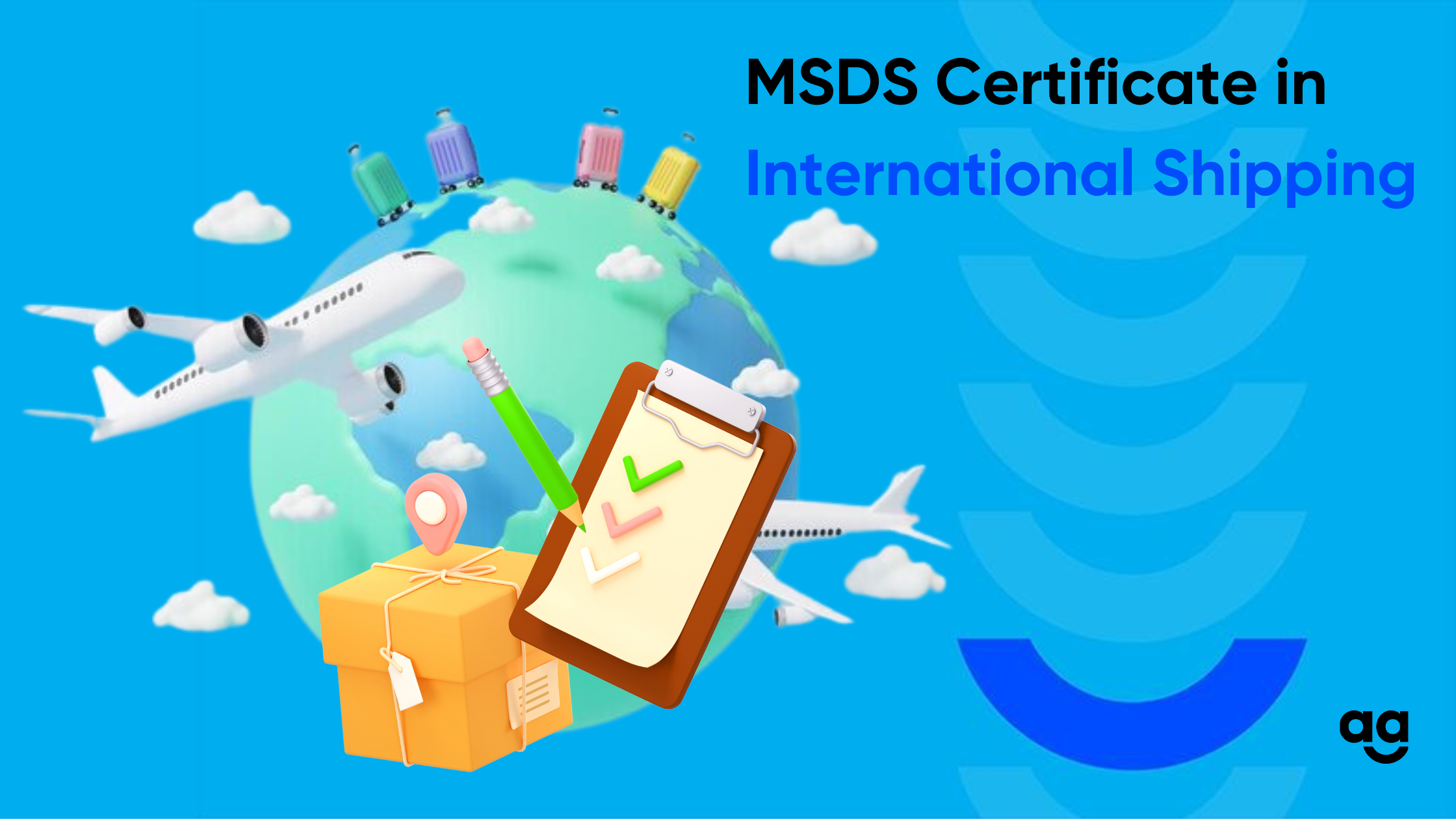Introduction
In the realm of international shipping, the smooth and secure movement of goods across borders is crucial. One important aspect that cannot be overlooked is the handling and transportation of hazardous materials. Safety and compliance are critical aspects of this process to protect the environment, personnel, and ensure smooth operations. One essential document that plays a crucial role in international shipping, particularly for hazardous materials, is the MSDS Certificate.
This blog aims to shed light on the significance of the MSDS certificate in international shipping, including its purpose, benefits, and how to obtain it.
What is an MSDS Certificate?
The Material Safety Data Sheet (MSDS) Certificate, also known as a Safety Data Sheet (SDS), is a detailed document that provides essential information about hazardous substances or materials being shipped. It serves as a comprehensive resource for anyone involved in the handling, storage, or transportation of such materials.
The MSDS Certificate includes vital data about the physical and chemical properties of the substance, potential hazards, safe handling procedures, emergency response measures, and disposal guidelines. The MSDS certificate acts as a crucial communication tool, ensuring that everyone involved in the shipping process understands the risks and necessary precautions.
The Importance of MSDS Certificate in International Shipping
Ensuring Compliance with International Regulations
The MSDS certificate plays a pivotal role in ensuring compliance with international safety regulations and guidelines. It provides comprehensive information about the hazardous materials being shipped, including their properties, handling precautions, and emergency response measures.
Different countries have their own regulations governing the import and export of hazardous materials. The MSDS certificate serves as proof that the shipped goods comply with the specific requirements of the destination country, facilitating smooth customs clearance and minimizing potential delays.
Protecting Human Health and the Environment
The primary purpose of the MSDS certificate is to ensure the safe handling, transportation, and storage of hazardous materials.
By accurately documenting the potential hazards and necessary precautions, the certificate helps protect the health and safety of workers involved in the shipping process, as well as the general public. Additionally, the detailed guidelines for proper disposal and emergency response measures help mitigate the environmental impact that these substances may have if mishandled.
Enhancing Communication and Transparency
International shipping involves multiple stakeholders, including shippers, carriers, customs authorities, and end-users. The MSDS certificate acts as a common language, facilitating effective communication and understanding among all parties.
By providing standardized information about the hazardous materials being shipped, the certificate enables transparency and ensures that everyone involved is aware of the risks and safety procedures associated with the specific substances.
Facilitating Emergency Preparedness and Response
In the event of an emergency, such as a spill, leak, or fire, immediate and appropriate action is crucial. The MSDS certificate plays a pivotal role in emergency preparedness and response. It provides clear instructions on how to handle and contain the hazardous materials, as well as guidelines for first aid and emergency procedures. By having access to this vital information, emergency responders can act swiftly and effectively, minimizing the potential harm and damage caused by the incident.
Obtaining an MSDS Certificate for International Shipping from India
Identify the Regulatory Requirements
Research Applicable Regulations:
Familiarize yourself with the relevant regulations governing international shipping and hazardous materials. In India, the Hazardous Chemicals and Wastes (Management and Handling) Rules, 2008 outline the requirements for MSDS certificates.
Determine Product Category:
Identify if your product falls under the category of goods requiring an MSDS certificate. Hazardous chemicals, pharmaceuticals, and certain food items are some examples that may necessitate an MSDS certificate.
Compile Required Information
Gather Product Information:
Collect detailed information about the shipped product, including its chemical composition, physical properties, and potential hazards. Ensure accuracy and comprehensiveness.
Consult Manufacturers or Suppliers:
Reach out to the product manufacturers or suppliers to obtain the necessary MSDS information. They should provide an updated and compliant MSDS certificate for your specific product.
Complete the MSDS Certificate
Prepare the Document:
Using the gathered information, create or compile the MSDS certificate. Include relevant sections such as product identification, hazardous ingredients, safety measures, handling and storage guidelines, and emergency response procedures.
Include Contact Information:
Add complete details of your business, including the company name, address, email ID, telephone number, and website. This ensures easy communication and traceability.
Regularly Update the Certificate
Stay Current with Regulations:
Monitor any changes or updates in international shipping regulations and ensure that your MSDS certificate aligns with the latest requirements.
Review and Revise:
Periodically review the MSDS certificate to incorporate any changes in product composition, safety measures, or contact information. Maintain accurate and up-to-date records.
Wrapping Up
The MSDS certificate holds immense significance in international shipping, ensuring compliance with regulations, safeguarding human health and the environment, and facilitating smooth customs clearance. By understanding the importance of the MSDS certificate and following the necessary steps to obtain it, businesses shipping goods internationally from India can demonstrate their commitment to safety, compliance, and responsible trade practices.
Businesses engaged in international shipping should prioritize the accurate preparation and maintenance of the MSDS Certificate for hazardous materials. They should also partner with industry experts who can provide guidance on compliance, offer comprehensive shipping solutions, and ensure adherence to safety standards. This is where Shipyaari comes in to assist businesses in adhering to all compliances and guidelines when shipping internationally.







 Shipping
Shipping







